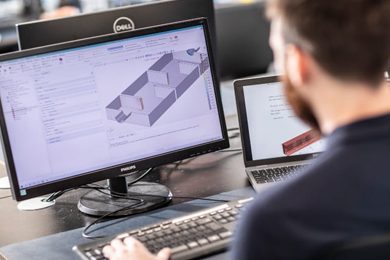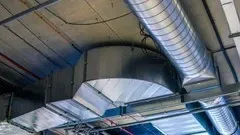This plan includes
- Limited free courses access
- Play & Pause Course Videos
- Video Recorded Lectures
- Learn on Mobile/PC/Tablet
- Quizzes and Real Projects
- Lifetime Course Certificate
- Email & Chat Support
What you'll learn?
- Linear Programming Problem LPP - Graphical method, Slope method, Simplex method
- Transportation Problem - North-West Corner rule or DENTZY's method, Vogel's approximation method (VAM)
- Assignment Problem - Hungarian method or Flood technique
- Sequencing - Shortest Processing Time (SPT) Rule, Earliest Due Date (EDD), n jobs in 2 machines
- Queuing Theory - Mathematical study of queues, Kendall Notation
- Network Analysis - Critical Path Method (CPM), Program Evaluation Review Technique (PERT)
Course Overview
Being one of the most most prominent subject in mechanical/manufacturing/industrial engineering curriculum, This subject has very much weightage in every aspect. Be it for academic proficiency, acing competitive exams or cracking that tough interview, OR (Operations Research) plays a very significant role.
In professional front, The field of operations research provides a more powerful approach to decision making than ordinary software and data analytics tools. Employing operations research, professionals can help companies achieve more complete datasets, consider all available options, predict all possible outcomes and estimate risk. . Additionally, operations research can be tailored to specific business processes or use cases to determine which techniques are most appropriate to solve the problem.
----- The ultimate aim of all the tools & practices involved in OR is to "Optimize" ------
In this course we are going to get the knowledge of various tools & practices of operations research with an ultimate aim to optimize problems & increase productivity. The course is divided into several sections, Linear Programming Problems, Transportation problems, Assignment problems, Sequencing, queuing theory & lastly PERT & CPM:
Linear Programming Problems (LPP) - In LPP, we will understand how to optimize a problem by using various methods like graphical method, slope method & simplex method. We will also understand about binding constraints & certain special cases.
Transportation & Assignment problems - In transportation, we will understand about popular methods like N-W corner rule & Vogel’s approximation method to optimize a transportation related problem. Whereas for assignment problems, we will look into Hungarian method.
Sequencing - In sequencing we will learn about n jobs in 1 machine via – Shortest Processing Time rule or SPT & Earliest due date rule or EDD. And n jobs in 2 machines.
Queuing theory - In queuing theory, we will get to know about the mathematical study of queues, Kendall notation, various queuing terminologies like arrival rate, service rate, calling population & many more.
Network analysis - We will do network analysis via PERT & CPM which comes very handy for project planning & execution.
The bottom-line of this course is to teach you the academic aspects of operations research keeping in mind the practical application to a greater extent. By taking this course, you are not only increasing your knowledge in academic front but also gaining insights about optimization at industry level.
Pre-requisites
- No experience is needed. Just a sound background of mathematics.
- The most important trait -
Target Audience
- Mechanical engineering graduates & undergraduates.
- Industrial or manufacturing engineering graduates & undergraduates.
- Professionals working in industry who want to optimize something.
- University students having OR (Operations Research) as their subject.
- Aspirants preparing for post engineering competitive examination.
Curriculum 39 Lectures 02:17:12
Section 1 : Introduction
Section 2 : LLP - Linear Programming Problems
- Lecture 1 :
- What are Optimization problems
- Lecture 2 :
- Mathematical formulation of LPP
- Lecture 3 :
- Steps for solving an LPP
- Lecture 4 :
- LPP Formulation
- Lecture 5 :
- How to draw graphs
- Lecture 6 :
- Numerical based on graphical method
- Lecture 7 :
- Shortcut Slope method
- Lecture 8 :
- Binding constraints & Special cases
- Lecture 9 :
- LPP Analytical (Simplex) method
- Lecture 10 :
- Numerical based on simplex method
Section 3 : Transpiration Problems
- Lecture 1 :
- What are transpiration problems?
- Lecture 2 :
- Allocation
- Lecture 3 :
- North-West Corner rule or DENTZY's methods
- Lecture 4 :
- Vogel's approximation method (VAM)
- Lecture 5 :
- Numerical on transportation problems
Section 4 : Assignment Problems
- Lecture 1 :
- Understanding assignment problems
- Lecture 2 :
- Hungarian method or Flood technique
- Lecture 3 :
- Numerical on assignment problem
- Lecture 4 :
- Solving maximization transportation & assignment problems
Section 5 : Sequencing
- Lecture 1 :
- The appropriate order
- Lecture 2 :
- SPT - Shortest Processing Time
- Lecture 3 :
- EDD - Earliest Due Date
- Lecture 4 :
- n jobs in 2 machines
- Lecture 5 :
- Numerical on n jobs in 2 machines
Section 6 : Queuing Theory
- Lecture 1 :
- Mathematical study of queues
- Lecture 2 :
- Why is queuing theory important
- Lecture 3 :
- Kendall Notation
- Lecture 4 :
- Important formulae
- Lecture 5 :
- Numerical on queuing theory
Section 7 : PERT & CPM - Network Analysis
- Lecture 1 :
- Project,Activity & Event
- Lecture 2 :
- Rules for network diagram
- Lecture 3 :
- Types of network diagram
- Lecture 4 :
- How to make a network diagram
- Lecture 5 :
- Network analysis
- Lecture 6 :
- CPM - Critical Path Method
- Lecture 7 :
- Computational approach of CPM
- Lecture 8 :
- PERT - Program Evaluation Review Technique
- Lecture 9 :
- Numerical on PERT analysis
Our learners work at
Frequently Asked Questions
How do i access the course after purchase?
It's simple. When you sign up, you'll immediately have unlimited viewing of thousands of expert courses, paths to guide your learning, tools to measure your skills and hands-on resources like exercise files. There’s no limit on what you can learn and you can cancel at any time.Are these video based online self-learning courses?
Yes. All of the courses comes with online video based lectures created by certified instructors. Instructors have crafted these courses with a blend of high quality interactive videos, lectures, quizzes & real world projects to give you an indepth knowledge about the topic.Can i play & pause the course as per my convenience?
Yes absolutely & thats one of the advantage of self-paced courses. You can anytime pause or resume the course & come back & forth from one lecture to another lecture, play the videos mulitple times & so on.How do i contact the instructor for any doubts or questions?
Most of these courses have general questions & answers already covered within the course lectures. However, if you need any further help from the instructor, you can use the inbuilt Chat with Instructor option to send a message to an instructor & they will reply you within 24 hours. You can ask as many questions as you want.Do i need a pc to access the course or can i do it on mobile & tablet as well?
Brilliant question? Isn't it? You can access the courses on any device like PC, Mobile, Tablet & even on a smart tv. For mobile & a tablet you can download the Learnfly android or an iOS app. If mobile app is not available in your country, you can access the course directly by visting our website, its fully mobile friendly.Do i get any certificate for the courses?
Yes. Once you complete any course on our platform along with provided assessments by the instructor, you will be eligble to get certificate of course completion.
For how long can i access my course on the platform?
You require an active subscription to access courses on our platform. If your subscription is active, you can access any course on our platform with no restrictions.Is there any free trial?
Currently, we do not offer any free trial.Can i cancel anytime?
Yes, you can cancel your subscription at any time. Your subscription will auto-renew until you cancel, but why would you want to?
Instructor

5945 Course Views
8 Courses



 Tech & IT
Tech & IT
 Business
Business
 Coding & Developer
Coding & Developer
 Finance & Accounting
Finance & Accounting
 Academics
Academics
 Office Applications
Office Applications
 Art & Design
Art & Design
 Marketing
Marketing
 Health & Wellness
Health & Wellness
 Sounds & Music
Sounds & Music
 Lifestyle
Lifestyle
 Photography
Photography







.jpg?crop=smart&width=600&height=400)
.jpg?crop=smart&width=600&height=400)
.jpg?crop=smart&width=600&height=400)

.jpg?crop=smart&width=600&height=400)








